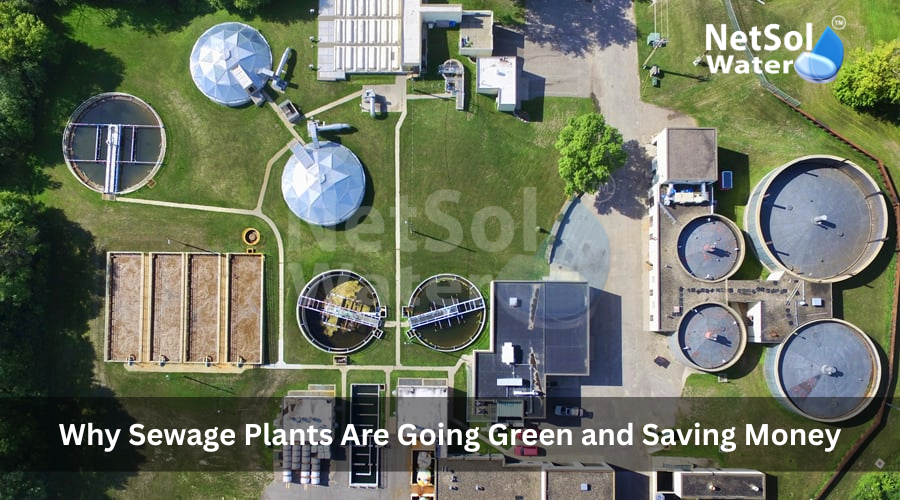
Why Sewage Plants Are Going Green and Saving Money
Sewage treatment plants across the world are transforming their operations to become more environmentally friendly. This change brings both environmental benefits and substantial cost savings. Modern sewage plants now use innovative technologies to clean wastewater while producing clean energy. These facilities also recycle valuable resources from waste materials. The switch to green practices helps sewage plants cut down their energy bills. It also creates new income streams through resource recovery. Many plant managers report significant savings after implementing green technologies. This transformation shows how environmental responsibility can align with financial success. The changes happening at sewage plants demonstrate the practical benefits of sustainable practices. As more facilities make this switch, they set an example for other industries to follow. These improvements in sewage treatment represent a major step toward a more sustainable future. They prove that going green can benefit both the environment and the bottom line.
Renewable Energy Generation at Modern Sewage Plants
The move toward renewable energy represents a fundamental shift in how sewage plants operate. Traditional sewage plants consume large amounts of electricity to run their equipment. Now many facilities generate their own power from the waste they process. This approach transforms sewage plants from energy consumers to energy producers.
- Biogas Production Systems: Modern sewage treatment plants capture methane gas from decomposing organic waste. Special tanks called digesters break down solid waste to produce biogas. This biogas contains methane, which works like natural gas to generate electricity. The plants use this electricity to power their operations. Many facilities produce enough power to run their entire operation. Some even sell extra electricity back to the power grid.
- Solar Power Integration: Many sewage treatment facilities now add solar panels to their properties. These panels take advantage of unused roof space and open areas. The solar arrays generate clean electricity during daylight hours. This solar power combines with biogas energy to make plants more self-sufficient. Solar installations also protect plants from rising electricity costs. The panels need minimal maintenance and work for many years.
- Heat Recovery Systems: New sewage treatment plants capture heat from their processes to save energy. They use this recovered heat to warm their buildings and treatment tanks. Heat recovery systems help plants use less natural gas and electricity. These systems work especially well in cold climates where heating costs are high. The recovered heat also helps the treatment process work better.
Resource Recovery and Circular Economy
Modern sewage plants do more than just clean water. They now recover valuable materials from waste. This new approach turns waste products into useful resources. The process creates new revenue streams while helping the environment.
1. Fertilizer Production: Treatment plants now process solid waste into safe fertilizer products. This fertilizer helps farmers grow crops without using chemical fertilizers. The plants can sell this natural fertilizer to create extra income, and local farmers will benefit from having access to affordable natural fertilizers. This process turns a waste product into something useful.
2. Water Reuse Programs: Advanced treatment systems make wastewater clean enough to reuse. This cleaned water works for irrigation and industrial purposes. Some areas even process it into drinking water. Water reuse helps communities deal with water shortages. It also creates a new source of income for treatment plants.
3. Mineral Recovery: New technologies help plants extract minerals from wastewater. These minerals include phosphorus and nitrogen compounds. Industries use these recovered minerals as raw materials. The recovery process helps prevent water pollution. It also generates income for the treatment plants.
4. Smart Technology Integration: Modern sewage plants use advanced technology to work better. These smart-systems help plants save money and protect the environment. The technology makes plant operations more efficient and effective.
5. Automated Control Systems: New control systems adjust plant operations automatically. They monitor water quality and adjust treatment processes as needed. These systems help plants use less energy and chemicals. They also ensure the treated water meets all safety standards. The automation makes plant operations more reliable.
6. Data Analytics: Treatment plants now collect and analyze data about their operations. This information helps them find ways to save energy and materials. The analysis shows which processes need improvement. It also helps predict when equipment needs maintenance. This data-driven approach leads to better decisions.
7. Remote Monitoring: New monitoring systems let operators check plant operations from anywhere. They can spot problems quickly and fix them before they get worse. Remote monitoring reduces the need for constant on-site staff. It also helps plants respond faster to emergencies. These systems make plant operations safer and more efficient.
Take Action for Greener Sewage Treatment
The transformation of sewage plants shows how going green saves money. These changes benefit both the environment and plant budgets. Want to learn more about how sewage plants are becoming more sustainable? Contact your local water treatment facility. They can explain how green technologies work in their operations. You can also ask about tours or educational programs. Understanding these changes helps everyone appreciate the value of sustainable practices. Get involved in supporting green initiatives at your local sewage treatment plant.
To explore customised commercial RO plant, Industrial RO plant, ETP or STP solutions for your needs in your areas and nearby regions, Contact Netsol Water at:
Phone: +91-965-060-8473
Email: enquiry@netsolwater.com
